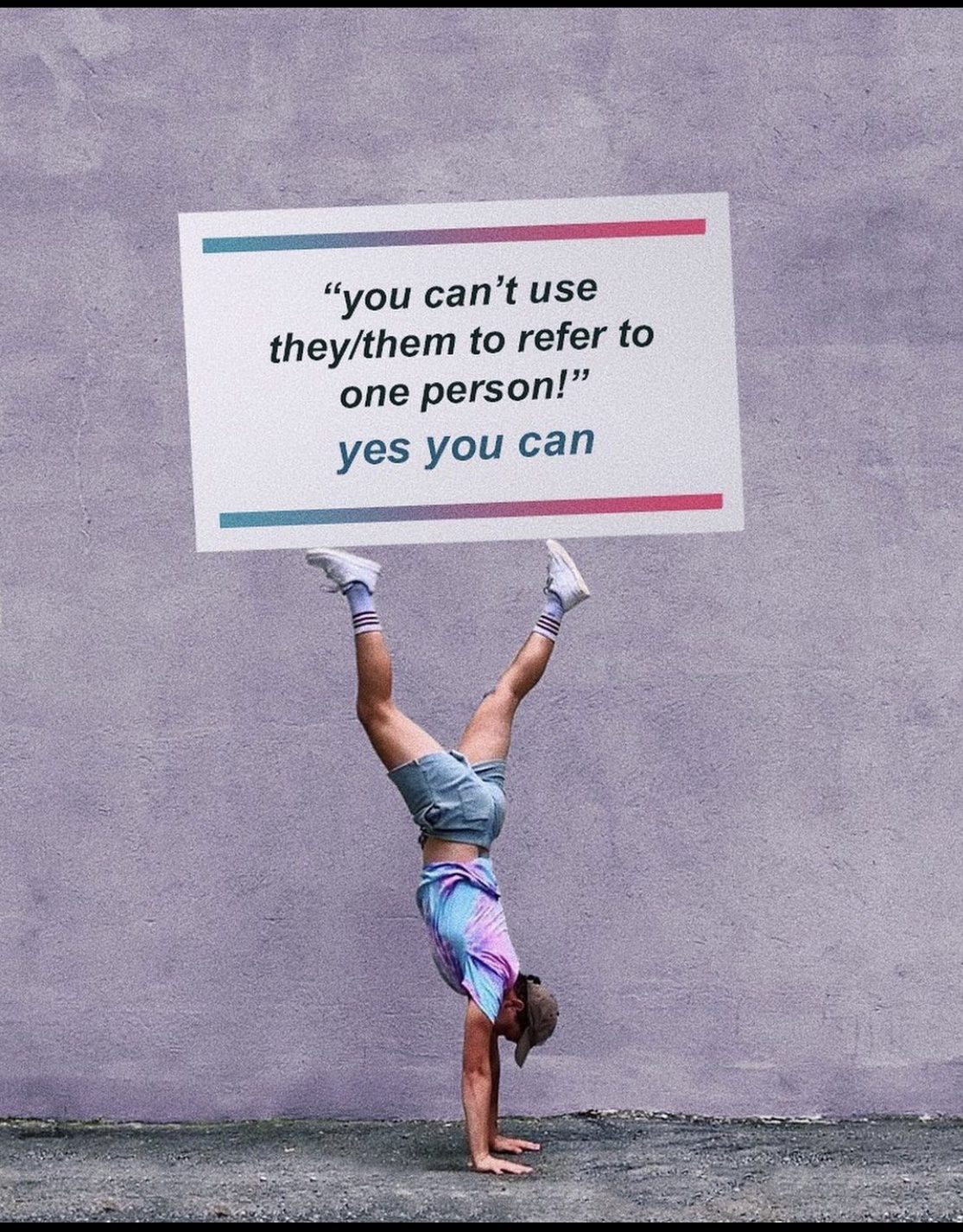
The issue of misgendering is a common obstacle for many members of the LGBTQIA+ community. From transgender to nonbinary to gender-nonconforming individuals, it seems that we all struggle with people using the wrong pronouns on us.
Personally, I use she/they pronouns. Although I don’t mind when people use she/her, it’s as if they’re ignoring a part of my identity when they strictly use those over they/them.
There are very few people who preferably use my they/them pronouns and the joy it brings me is amazing. It helps a lot when I’m feeling particularly detached from my feminine side.
When it comes to misgendering it isn’t something you can just brush off, it’s a serious issue that hurts people.
Freshman Guilherme Da Mata Silva says, “It’s who they are and people just disrespecting that is awful.”
Personally, every time I come across a check box that asks my gender, I don’t know what to say. It doesn’t help that my whole life I’ve been perceived as a girl because it makes me question what I feel.
I overthink a lot. All my life, I’ve dictated my decisions based on what people thought of me and what I should do. I told myself that I had to be the best version of myself in their eyes. This only delayed my self-discovery of no longer conforming to the gender I was assigned at birth.
After all, who was I to decide that yet? I was a scared 13-year-old kid who couldn’t tell the difference between being a tomboy and not being a girl.
So, I hid it inside for a long time. Every time people choose to use she/her pronouns and ignore my they/them pronouns it makes me feel like that scared kid again. What if I’m wrong, you know?
Especially, when I’m embracing my feminine side and dressing in what society deems “female clothing.” I ask myself if I even know myself at all. And before I know it, I’m sucked out of reality and into this illusion my mind has made up that I’m just a confused, attention-seeking girl.
I reassure myself that it is not true and bring myself back, but there are people who can’t do that. That’s why it’s important to respect people’s pronouns and correct yourself.
One of the kinds of pronouns people tend to get confused with the most is they/them. In a post by social media influencer Matt Bernstein, he explains how they/them pronouns can be used in the singular tense. He calls out bigots and brings up how they use they/them pronouns in singular tense all the time.
People are always so quick to say that it’s bad grammar, but they use it unknowingly. The truth is, they just can’t accept that someone is different from them. People are so afraid of what they can’t understand that they just shut it out.
Freshman and reporter for The Blue & Gold, Ruka Truong states “I’ve seen people learn and understand the concept of pronouns so easily just because they’re willing. It’s really not that hard.”
Da Mata Silva believes that misgendering on purpose is “disrespectful and very inconsiderate given the fact that people are finally being open about who they are.”
He is right. It is not something as simple as the decision to wear your hair up or down. It’s a piece of your identity.
This issue is one that needs to be talked about more and realized as harmful. As we shine a light on the long-ignored issues of our society, we see the real danger that misgendering has. It strips people of their identity and they are forced to stay silent.
This causes unimaginable mental health damage. It perpetuates the idea that you are what society says you are and not what you feel and know you are.
People like me are not afforded the luxury of being able to express themselves at home for a multitude of reasons. This is why places like schools need to be free and open spaces for us to share who we are.
An anonymous student stated, “I prefer they/them pronouns, but I don’t mind he/him and she/her ‘cause I guess it’s easier for most people to understand if I use more pronouns. Probably not what I should do, but it’s fine.”
It is not fine though. The society that we’ve grown in has shushed us and pressed down on the most authentic parts of our identities. It is like refusing to acknowledge that someone is a blonde and not a brunette.
Why is it so hard for the world to see that not everything is black and white?
Why can’t they accept people and ideas that are different?
These ideas are not new, they have been ever-present throughout history and they have been hushed, but we will not be silenced. If you can’t accept me that’s fine, but I’m sure as hell not changing myself to fit your views.
After all, it’s clear to me that everyone in this world has their own opinions and I can’t force people to change and use someone’s correct pronouns. However, I hold hope that my generation will bring more inclusivity to the world and we will all learn that misgendering is a serious problem that causes harm to many individuals.




